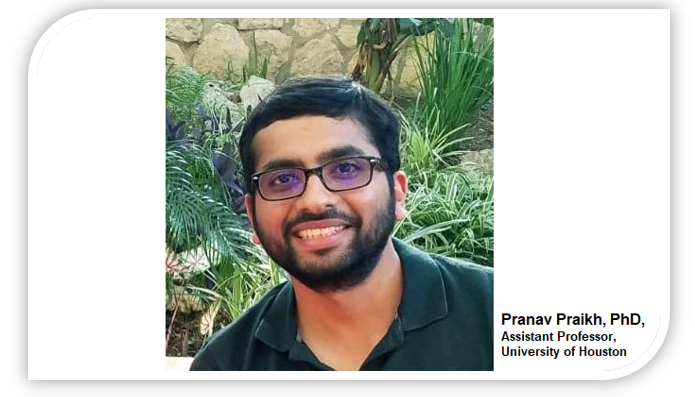Body
Throughout 2020, pandemic-related lockdowns forced families to consider a new normal: routines like traveling and going to the office were altered, but for many, opportunities to spend more quality time together also emerged.
For Pranav J. Parikh, MBBS, PhD, an Assistant Professor in the Department of Health and Human Performance at the University of Houston and Director of the Parikh Lab, more time spent at home with his young and lively 3-year-old daughter allowed him to explore ways to improve healthcare for children.
His daughter does not have a disability. But as he observed how she used her hands to explore the environment around her, he considered how other children with developmental disabilities, such as Cerebral Palsy (CP), experience deficits that reduce their ability to perform everyday movements. These deficits often limit their independence and opportunities for social activities.
What could be done to improve care for these children? One solution Parikh envisaged was to develop a more accurate test to measure impairment specifically related to dexterity – the ability to perform fine movements and skills with one’s hands.
Although current assessments of dexterity may reveal the time or speed it takes a child to complete a task, these measures lack sensitivity and do not tell clinicians how much force it takes someone to complete a task — a key factor in understanding functional disability and limitations. Think of the delicate touch it takes to pick up an egg without breaking it, for example – too much or too little force can have quite messy or frustrating consequences!
With a new focus in mind, Parikh conceptualized and designed a novel pediatric dexterity assessment that integrates sensors with a time-based measure to assess how much force is being exerted in the hands during certain tasks. By providing more specific data on force and dynamic control, “this information will give doctors and other clinicians critical information that could change how they care for children with impairments,” he explains.
Parikh and his team developed a working prototype of this assessment and collected preliminary data. In late 2020, he was one of four applicants awarded funding as part of the inaugural round of C-STAR pilot project funding.
With funding from the C-STAR pilot project program, Parikh is testing the validity and reliability of his assessment in children who are typically developing and in children with CP. This funding will provide him with important pilot data to consider ways to improve the assessment and its clinical potential.
One particular resource of C-STAR that helped Parikh improve the design of his project was participation in a Buzz Lab, where clinicians and researchers reviewed his project and discussed future directions. Buzz Lab experts provided feedback on how to improve the experimental design, how his experimental methods may be useful to other pediatric clinical populations, and ways to improve the accuracy of his assessment.
“The most important part is that the communication did not end here. I am still in contact with C-STAR experts to obtain continuing feedback,” he notes.
In the next five years, Parikh hopes to generate new knowledge that will help clinicians efficiently detect motor impairments and assess how well a rehabilitation protocol is working.
“I want to thank C-STAR for believing in our project. C-STAR’s support in getting us to this stage is very much appreciated,” he says. “We look forward to a long-lasting association.”
Fun facts: When he’s not researching hand dexterity and brainstorming ways to improve health function, he enjoys spending time with his wife and daughter, playing tennis, and traveling.
